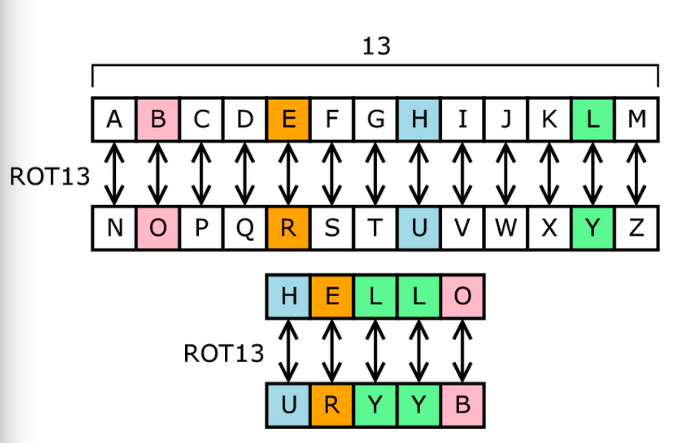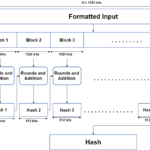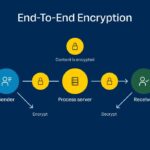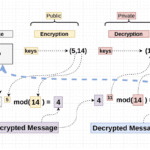Cryptography, a field often shrouded in mystique, has captivated minds for centuries. Many perceive it as a domain reserved exclusively for mathematical prodigies, a veritable citadel for those equipped with an exceptional mastery of numbers. However, this perspective warrants reevaluation. Do you need to be a math genius to learn cryptography? In exploring this question, we delve into the fundamental principles of cryptography, the requisite mathematical foundations, and the practical skills that can facilitate one’s journey into this enthralling world.
At its core, cryptography is the science of encoding and decoding information, ensuring that data remains secure from prying eyes. The desire for confidentiality, integrity, and authenticity of communication has fueled its development. The modern landscape of cryptography has transformed dramatically, transitioning from traditional methods, such as ciphers, to complex algorithms used for secure digital communication today. This evolution prompts an essential query: is an extensive mathematical background a prerequisite for understanding these methods?
To unravel this question, it’s imperative to appreciate the foundational knowledge inherent in cryptography. Mathematics indeed plays a pivotal role, particularly in areas such as number theory, algebra, and computational complexity. These branches of mathematics provide the bedrock upon which cryptographic protocols are built. Concepts such as prime numbers, modular arithmetic, and discrete logarithms are frequently encountered in the development of cryptographic algorithms.
However, it is crucial to note that while a basic understanding of these mathematical concepts can be advantageous, the threshold for entry into the cryptographic realm is not insurmountable. A moderate grasp of mathematical principles suffices to comprehend many cryptographic techniques and applications. The crux lies not in being a mathematical savant, but rather in possessing the willingness to engage with the material.
Moreover, many educational resources have democratized access to cryptography. Books, online courses, and tutorials abound, catering to diverse learning styles. These resources often employ analogies and practical examples that elucidate complex mathematical concepts, thereby enabling learners to connect abstract ideas with tangible applications. For instance, envisioning encryption as a secret language can ignite curiosity and foster a deeper understanding of how information can be obfuscated for security.
Beyond mathematical concepts, cryptography is increasingly about logical reasoning, problem-solving, and analytical thinking. Individuals with strong critical thinking skills and an aptitude for deciphering patterns may find themselves at an advantage. This versatility in skills suggests that prospective cryptographers could hail from varied academic backgrounds—computer science, engineering, or even philosophy. The eclectic nature of cryptography invites a tapestry of minds contributing to its advancement.
Additionally, a contemporary understanding of cryptography is incomplete without recognizing the significance of computer science. In today’s digital age, computational techniques overshadow traditional mathematical theories. Cryptographic algorithms often hinge on key generation, encryption, and decryption, processes that are significantly influenced by computational efficiency. Therefore, familiarity with programming and algorithms can be as vital as mathematical proficiency.
This intersection of mathematics and computer science creates a compelling narrative; readers should realize that they don’t need to start with an esoteric understanding of advanced mathematics. The field is accessible to anyone driven by curiosity and desirous of mastering the requisite skills through dedication and practice. It is this journey—the exploration of algorithms, the challenge of security protocols, and the understanding of real-world implications—that makes cryptography a captivating pursuit.
Consequently, one must consider the implication of practical experience. Engaging in hands-on projects, participating in cryptography challenges, or contributing to open-source projects can provide invaluable insights that transcend theoretical knowledge. Such experiences cultivate not just technical skills, but also an analytical mindset, further bridging the gap between mathematics and application.
It is also worth underscoring the collaborative nature of the cryptographic community. Interaction with peers in forums, workshops, or conferences can provide a stimulating environment where knowledge is shared and curiosity is nurtured. Such spaces invite questions and foster discussions that can demystify seemingly complex concepts, reinforcing the notion that the journey into cryptography need not be undertaken alone.
In reflecting upon whether one must be a math genius to learn cryptography, it becomes evident that the pathway to this fascinating discipline is more egalitarian than commonly perceived. While a foundational understanding of mathematical concepts is useful and enhances comprehension, it is not a stringent prerequisite. Instead, enthusiasm for learning, coupled with logical reasoning and problem-solving skills, serves as a more compelling criterion for success.
Encouragingly, the cryptographic domain continues to evolve, welcoming individuals from varied backgrounds and experiences. The shift in perspective away from the notion of needing to be a mathematical prodigy opens the door for many who might otherwise hesitate to explore this field. Ultimately, those who are willing to engage with the material, seek out resources, and develop their competencies will find themselves not just learning about cryptography, but also participating in a vibrant, ever-evolving community where knowledge and curiosity abound.









Leave a Comment